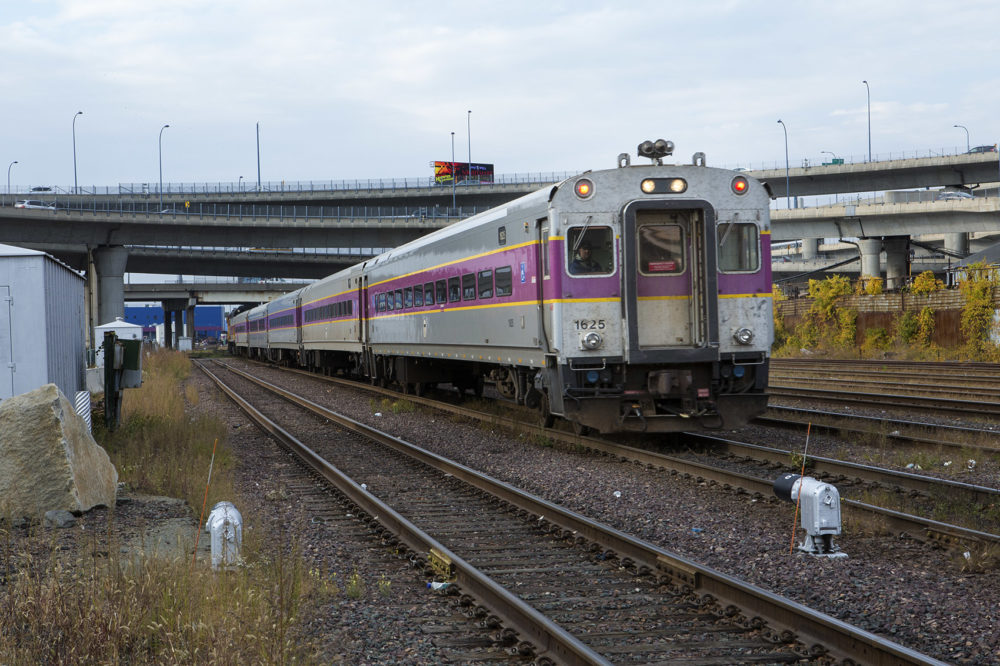Last week, Transportation Secretary Stephanie Pollack indicated it may make sense to slow down planned improvements to the MBTA commuter rail network. We wouldn’t want to make too much out of a single statement, but it did catch us by surprise. This seems like exactly the opposite course to consider if we’re looking for strategies to put Massachusetts on a path for a strong and equitable recovery.
The project known as “Rail Vision” will increase the performance of existing public infrastructure by allowing operators to run trains faster, more frequently, and with fewer disruptions. In a marked departure from the current service model, which mostly benefits suburban residents commuting to downtown Boston, Rail Vision would generate more equitable growth by delivering more reverse commuters to Gateway City employers. It would also make jobs, educational opportunities, health care, and other vital services located at transit nodes more accessible to low- and moderate-income Gateway City residents.
Secretary Pollack suggested these commuter rail improvements may no longer be an urgent priority because suburban residents are working remotely, and when the economy reopens, they may prefer the safety of their cars over trains.
This argument runs contrary to the project’s equity logic. At a time when economists say growing inequality presents one of our most challenging long-term threats, providing more mobility and access to opportunity for low- and moderate-income communities was the strongest rationale for major upgrades to commuter rail service. Both the Rail Vision advisory commission and members of the FMCB board, who voted to advance the project last fall, clearly articulated this goal.
Right now Gateway Cities are smoldering coronavirus hotspots. Chock full of the essential workers caring for our elderly in nursing homes, packaging our groceries, and delivering our takeout. Gateway City high school and college students have joined the ranks of frontline workers, foregoing their education to help their families make rent. By venturing out to do vital work, they’ve put themselves and those close to them in harm’s way. Telling residents of Brockton, Lawrence, Lynn, and other Gateway Cities that they will need to wait longer before commuter rail service opens up new opportunities seems like the exact opposite of what we should be doing. Now is the time to reassure those who have made sacrifices that we will redouble efforts to build a stronger and more equitable Commonwealth post-COVID-19.
Slowing down preparation for a vital infrastructure project is also bad fiscal policy. This week, Federal Reserve Chairman Jerome Powell warned that the pandemic could produce a sustained downturn that will inflict lasting economic damage without a coordinated government response. Fiscal stimulus from infrastructure investment can increase employment in the short-term while boosting long-term growth. When interest rates are extremely low, these gains can generate enough revenue to service the debt.
But two conditions are vital for this scenario to play out. First, construction needs to move forward fast while the economy is slack. And second, government must make smart choices, so the public infrastructure actually increases private sector productivity.
The Rail Vision planning process gave us a head start. Rather than contemplating delay, we should be looking at scenarios to move as quickly as possible, particularly given the likelihood of eventual federal stimulus funds for infrastructure projects.
Right now a lot of whip-smart students are graduating with uncertain employment prospects. MassDOT constantly struggled to hire the people it needed when the economy was blazing hot. Instead of hemming and hawing, they should corral as much of this talent as possible to come up with prudent strategies, expediting investments that will lead to a brighter future when we finally emerge from this terrible ordeal.
MassINC Resources
COVID-19 Response
Housing and Economic Development
Transportation
The MBTA board approves $159 million for South Coast Rail work, including a new station in Fall River.
Education
Dr. Alberto Vázquez Matos, a deputy superintendent in Hartford, is named new receiver of the Holyoke Public Schools. After running a series on the first five years of receivership, an editorial in the Hampshire News Gazette says the work must continue.
